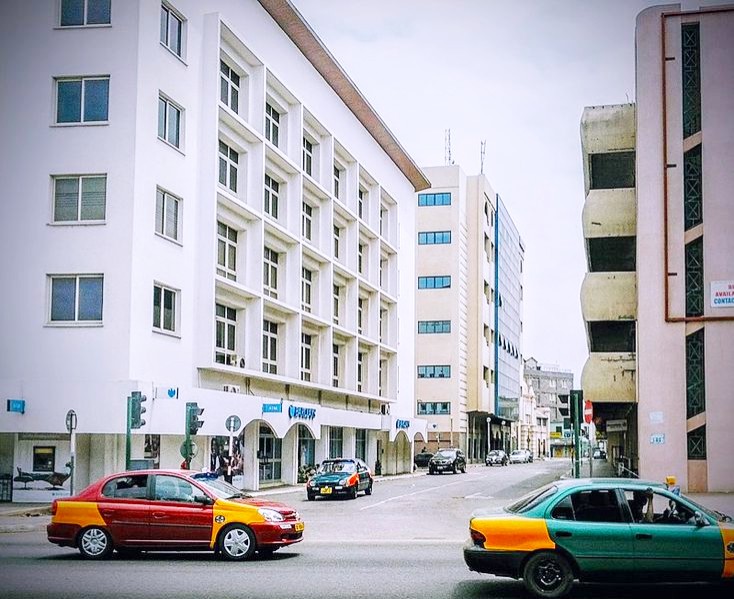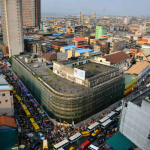
Ghana, often referred to as the “Gold Coast,” is richly blessed with natural resources—especially gold. The country is among the top ten gold-producing nations globally, and it ranks first in Africa, having overtaken South Africa in recent years. Yet, despite this mineral wealth, Ghana continues to face significant developmental challenges. The question remains: why does a country so rich in gold still struggle to climb the ladder of industrialization and development?
Ghana’s gold has been mined for centuries, but much of it was exploited during colonial rule by the British, who prioritized extraction over development. Infrastructure such as railways and roads were built primarily to support the transport of gold and cocoa, not to industrialize the nation.
Post-independence, Ghana inherited an economy structured to export raw materials without value addition. This legacy remains largely intact: gold is mined, exported in raw form, and refined abroad—yielding minimal profits for Ghana compared to what is made by foreign buyers and refiners.
Foreign Ownership and Limited Value Addition:
More than 80% of Ghana’s gold is extracted by foreign multinational companies such as Newmont, Gold Fields, and AngloGold Ashanti. These corporations are often given generous tax breaks and repatriate most of their profits, leaving Ghana with limited fiscal benefits.
Moreover, little value is added to the gold in-country. Ghana exports raw gold rather than processing or using it to create jewelry, technology, or industrial products locally—sectors that could stimulate job creation and diversify the economy.
Ghana has struggled with weak institutions and governance challenges. Corruption in the mining sector—ranging from illicit small-scale mining (galamsey) to underreported exports—has severely undermined revenue generation.
According to the Africa Centre for Energy Policy (ACEP), billions of dollars are lost annually through tax avoidance, illegal mining operations, and unaccounted exports. These losses reduce the funds available for critical public investments like education, healthcare, and infrastructure.
Environmental Degradation and Unsustainable Practices:
Galamsey has become a major environmental and social crisis. These illegal small-scale mining operations have destroyed water bodies, forests, and arable land, threatening agriculture and human health. While galamsey does provide livelihoods for many unemployed youth, its long-term environmental cost outweighs its short-term economic benefit.
Moreover, the lack of enforcement of environmental regulations and land reclamation laws further compounds the problem.
Another point is, Ghana’s economy remains overly dependent on a few key exports: gold, cocoa, and oil. This lack of diversification makes the country vulnerable to global commodity price shocks. When prices drop, government revenues fall, leading to budget deficits and economic instability.
A developed nation needs a strong manufacturing base, innovation capacity, and industrial sectors. Ghana has made progress in ICT and banking, but still lacks robust industrialization that could absorb labor, reduce imports, and create high-value exports.
Debt Dependency and IMF Bailouts:
Despite its natural wealth, Ghana frequently turns to the International Monetary Fund (IMF) for support due to recurring balance of payments issues. These bailouts often come with austerity measures that restrict public spending, slow development, and limit job creation.
Instead of leveraging its gold wealth to finance development, Ghana continues to borrow heavily—sometimes mortgaging future mineral revenues for short-term gains. This cycle of debt limits long-term planning and infrastructure development.
Additionally, development is not solely about natural resources—it also requires a skilled, innovative population. Ghana has made strides in basic education, but many young people still lack the technical and vocational training needed for modern industries.
Besides, brain drain remains a challenge. Many educated Ghanaians emigrate in search of better opportunities, further depleting the country’s human capital needed for economic transformation.
Elections in Ghana often lead to a cycle of policy discontinuity. New governments frequently abandon or reverse the initiatives of their predecessors, disrupting long-term development strategies. This political instability discourages investment and disrupts planning.
Instead of a 20- to 30-year vision, development is often approached in four-year political windows. As a result, projects are sometimes rushed for political gain, rather than properly designed for sustainable impact.
You Are The Right Person To Reset Ghana
Ghana’s situation highlights the “resource curse” paradox: countries rich in natural resources often experience slower development and more inequality than resource-poor nations. The problem isn’t the gold—it’s the structures, policies, and priorities surrounding its management.
To change course, Ghana must:
- Strengthen transparency and accountability in the mining sector.
- Invest in value addition and local processing.
- Diversify the economy beyond natural resource exports.
- Build strong institutions and enforce environmental laws.
- Develop a long-term, non-partisan national development strategy.
Ghana has the gold—but to truly shine, it must mine more than its resources. It must mine its human potential, ideas, and institutions for sustainable, inclusive growth.





